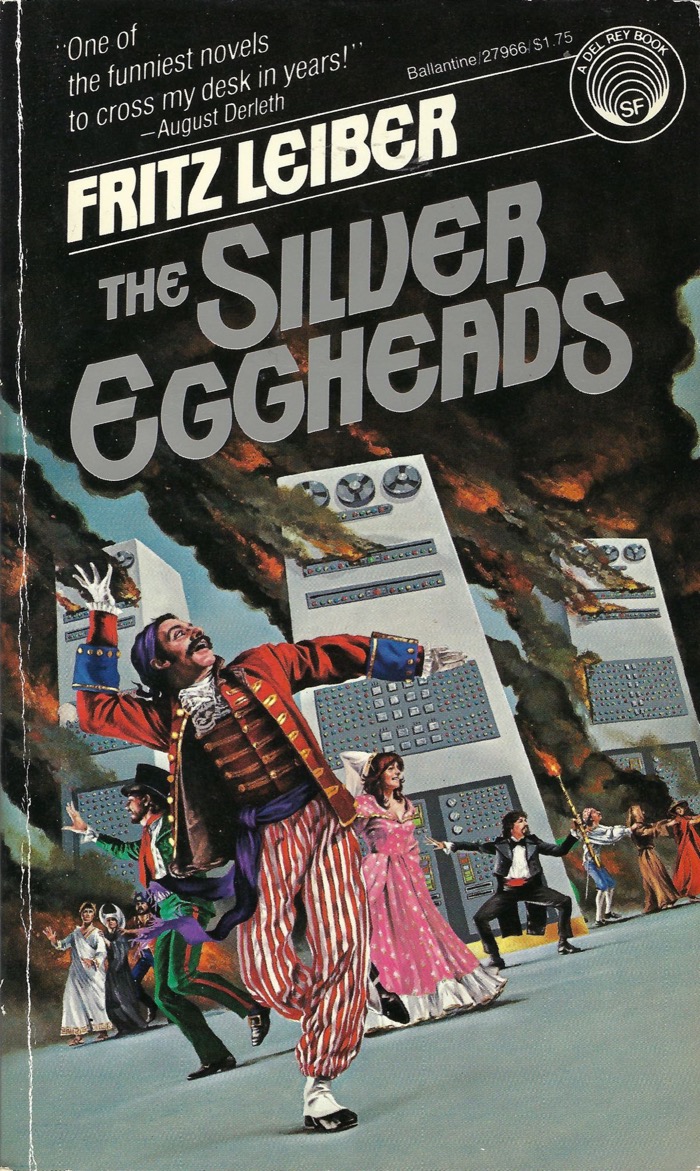The Silver Eggheads
Reviewed date: 2005 Sep 24
Rating: 3
192 pages
The fiction genre is ruled by megalithic publishing houses whose wordmills churn out stories by the pound. Writers are actors employed by the publishers to live out the fantasy life that entrances the average reader. The only writing these writers do is to tend the wordmills that produce the stories.
Eventually some writers object to the wordwooze pap that the wordmills produce. They organize a revolution and succeed in destroying all the wordmills. Unfortunately, the would-be writers soon discover they have no idea how to write without the wordmills.
This is where our hero, Gaspard de la Nuit, rises to the occasion. A "writer" and dedicated fan of wordwooze, Gaspard joins forces with two publishers to bring back the writing business. They have a secret weapon: the preserved brains of thirty of the Twentieth Century's greatest authors. Gaspard and the publishers race against time to persuade the "silver eggheads" to write some books before the publishing industry fails due to lack of new material.
So far, so good. It's a clever scenario and there is a sympathetic main character. However, Fritz Leiber manages to screw things up by turning it into a farce: instead of focusing on Gaspard's growth (e.g., by having him learn to appreciate real literature instead of the wordmilled wordwooze that he has always known), Leiber instead shows us a plot revolving around Gaspard's robot friend, Zane Gort. We get to hear preposterous stories about how sentient robots modeled themselves after humans, even to the point of inventing two sexes and devising ways to have sex. It's the sort of story that critics like to call a "delightful, playful romp" but which I call drivel. Still, I must give The Silver Eggheads a score of three due to its premise, its competent writing, and the way Fritz Leiber manipulates the reader into feeling a visceral disgust for the wordwooze fiction produced by the wordmills.
